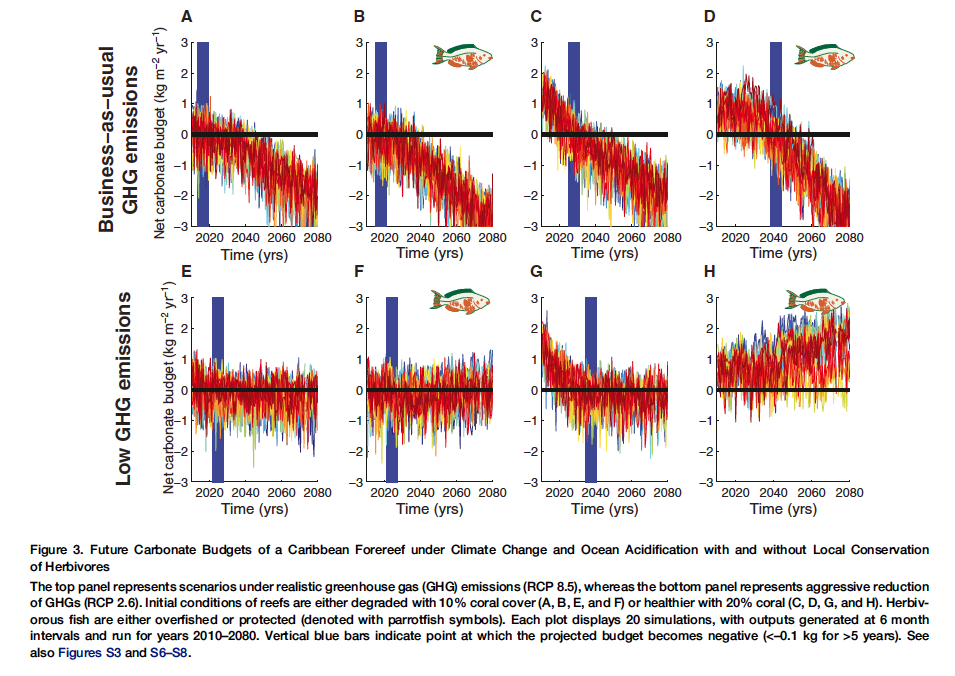An important new modeling study (Kennedy et al 2013 download PDF) forecasts the structural decay of Caribbean reefs based on emission scenarios from the new ‘representative concentration pathways’ (RCPs).
Excerpted Authors Summary: Coral reefs face multiple anthropogenic threats, from pollution and overfishing to the dual effects of greenhouse gas emissions: rising sea temperature and ocean acidification. Most reef functions and ecosystem services are founded on the ability of reefs to maintain their three-dimensional structure through net carbonate accumulation [accretion]. Coral growth only constitutes part of a reef’s carbonate budget; bioerosion processes are influential in determining the balance between net structural growth and disintegration. Here,we combine ecological models with carbonate budgets and drive the dynamics of Caribbean reefs with the latest generation of climate models… Local management of fisheries (specifically, no-take marine reserves) and the watershed can delay reef loss by at least a decade under ‘‘business-as-usual’’ rises in greenhouse gas emissions. However, local action must be combined with a low-carbon economy to prevent degradation of reef structures and associated ecosystem services.
The team built a complex simulation model that was used to project reef-wide carbonate budgets, i. e. whether reefs were accreting (growing vertically) or eroding, under RCP 2.6 and 8.6, on initially healthy or unhealthy reefs, and with or without local management. In this model, a healthy reef is covered by 25% living coral. Higher coral cover generally means more habitat and greater accretion. Local management meant both effective protection of herbivorous fishes and watershed protected to limit nutrient pollution.
The findings of Kennedy et al. [2] are sobering. Even under RCP 2.6, only reefs that are still healthy and well managed are predicted to continue accreting through 2100.
In Fig. 3 from Kennedy et al 2013 above, coral reef accretion is predicted through the year 2080, based on eight different scenarios. In only one – (H) the low emissions, effective local management, and initially healthy reefs – do reefs continue to accrete. In all other seven scenarios, they erode. This means the flatten out and no longer provide habitat and also that they cannot keep up with sea level rise. They are effectively dead.
See this perspective piece (PDF) I wrote for Current Biology for a full description of Kennedy et al 2013, including more about the model, assumptions, and implications.

Leave a Reply